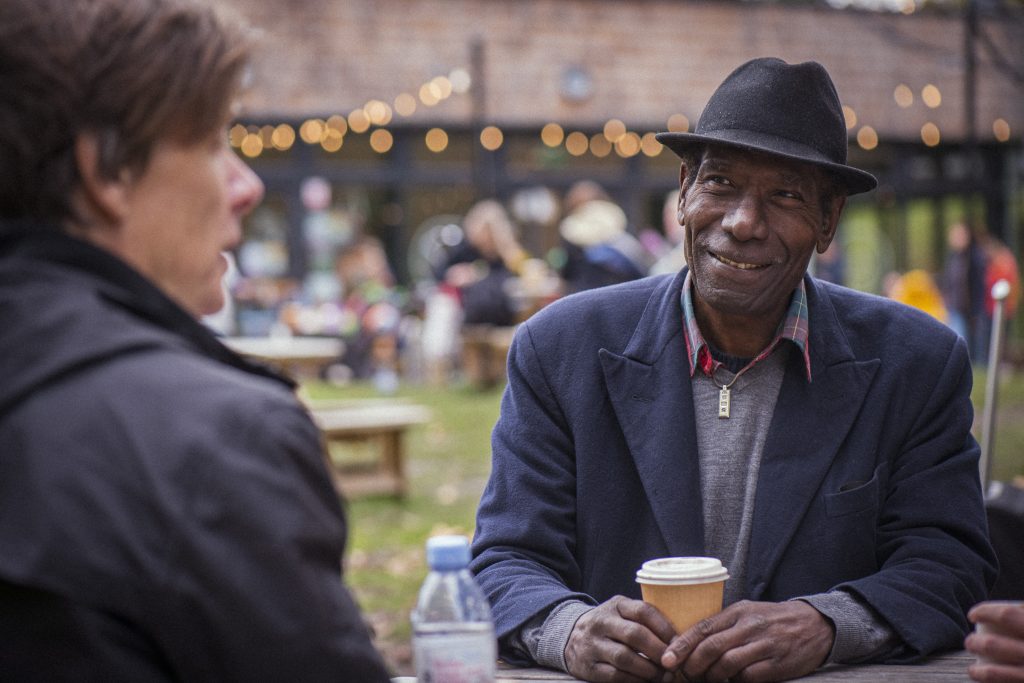
Maintaining Healthy Relationships in Older Adulthood
No matter a person’s age, there is a desire for connection with others.
Researchers describe this as a basic human need. For some older adults, these connections may be lost for a number of reasons. These include the passing of a spouse or friends. Friends may move into care facilities or into the homes of their adult children. When older adults retire from their jobs, this can often weaken or end the bonds they had with coworkers. Health issues or driving difficulties may limit the amount of independence and access to social events an older adult previously had. Even though there are challenges, there is good news for older adults. There are many ways to establish or reestablish social relationships with others.
The first step is to think about the kinds of social relationships that are desired. What do you want? Is it to be able to talk with family on a regular basis? Are you looking for meaningful group activities? Do you just want someone to check on you now and then? Do you desire a romantic relationship?
Below are some ways that you can become engaged in different relationships:
With Family:
- Contact your relatives and tell them that even if you seem to be doing okay, you really want and need them to call you on a daily or weekly basis. Share this request with multiple family members if possible. This may not always happen as often as you like, but you can work to spread your circle even wider to others beyond family members.
- Ask if you can listen to the grandkids reading for their schoolwork. This helps you and them.
- Offer to call them instead of waiting for their call.
- If you do not have family you can turn to, consider reaching out to neighbors, joining an online support group for older adults, or you may contact your local senior center. Many of them offer daily calls to seniors who would like contact.
With Friends:
- Connect with your homeowners association and ask if there are any opportunities for connecting with neighbors.
- Do some research to track down old friends. If you are not good with the computer ask a family member or friend for help.
- For those who are local, contact your Area Agency on Agency by dialing (336) 904-0300. They can inform you about virtual and in-person classes, and services for groups and individuals that are at no cost to you.
- Volunteer as a Pen Pal. There are groups that can connect you to pen pal opportunities with military members, older adults and others.
With Potential Romantic Partners
- Make a decision about what you want in a relationship.
- Talk it over with a trusted family member or friend.
- If you choose to use online dating platforms, be sure to first identify a trusted safety buddy to inform about all of your online dating activity. Let them know the date, time and location of any planned meetings, as well as the person’s name and other details.
- Reach out to known networks (church, community organization, recreational facilities) and ask about opportunities to meet others.
- Join groups that share an interest (music, gardening, reading, quilting).
- Avoid sending money, gifts or financial information to someone you have met online.
- Ask a friend to join you for the first in person meeting with an online date.
- Be open but wise.
All of these strategies to connect require effort on your part. If you do not feel up to doing this, you can have someone to be an advocate to assist you. If you need expert support, consider meeting with a therapist who can provide a safe space for you to talk about ageing, loneliness, and what you want to do at this stage in your life. Counselling is not just for the persons who are living with a mental health diagnosis. Counselling is a resource for those who are worried or wondering, wounded or wishing, the wise or the wisdom seekers. Counselling is available online or in-person with social distancing and safety practices. Click here for an HRI resource on finding a counsellor to help with relationship and family challenges.
Getting Started in Relationships:
Once you find people to engage with, look for some basic elements and gut checks of a healthy relationship.
- Is communication between the two persons valued and encouraged?
- Are the thoughts and feelings of each person respected even if there is disagreement?
- Does the relationship allow adequate room for each person’s individuality without demanding that one person always mold to the wishes of the other?
- Does the relationship add to your life and fulfillment rather than taking away from it?
- Does the relationship allow you to maintain connections to family, friends and activities you engaged in before the new relationship started?
- Does this person connect you to the rest of their world (family, coworkers, friends)?
- Are your “No’s” respected?
- Is there a balance of give and get or is one person mostly taking without giving?
- Does this relationship feel good to your intuition or are there silent alarms?
- Are you personally growing in this relationship of just going?
This is not a one-time checklist. Return to it often. You can navigate the terrain of relationships as long as you keep your eyes as open as your heart.
